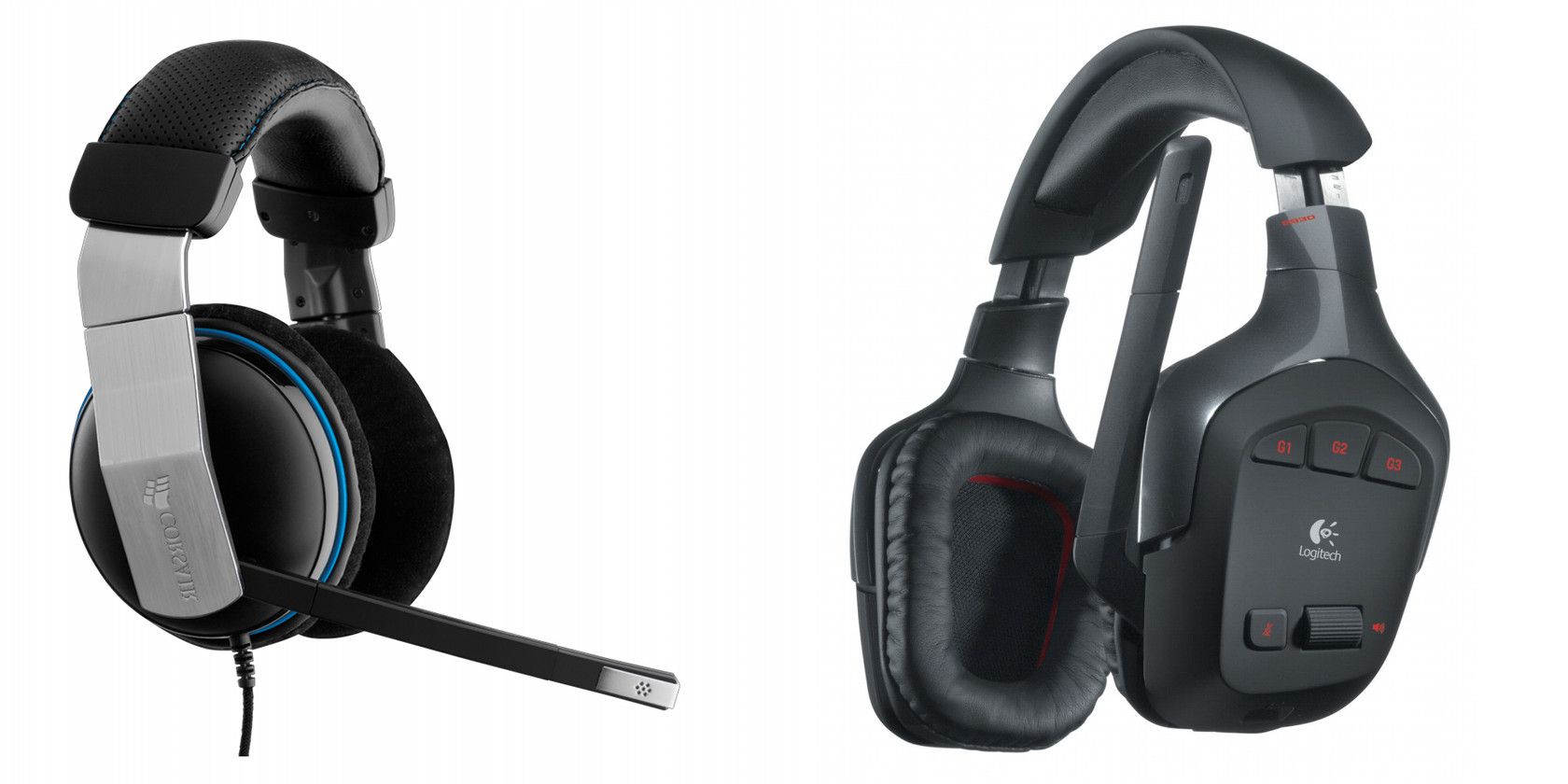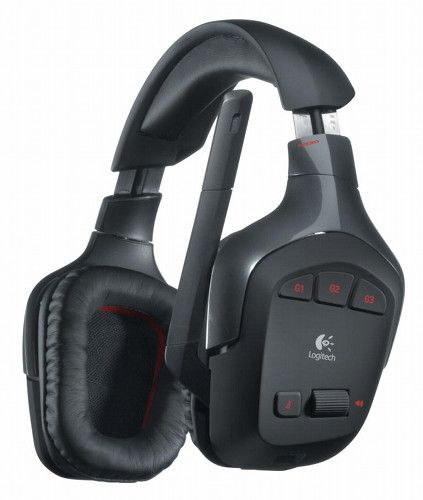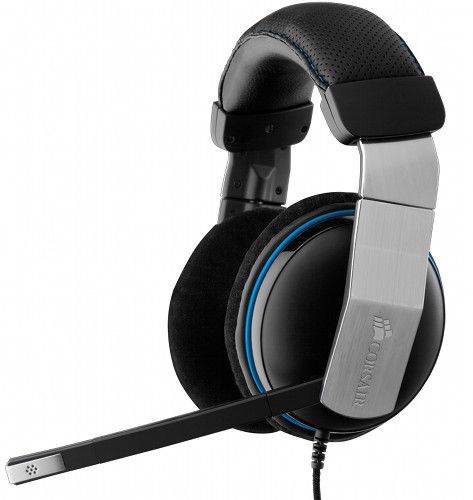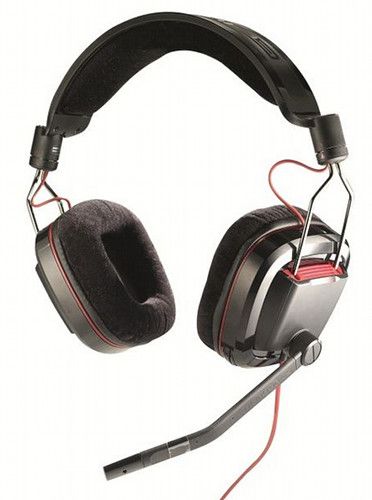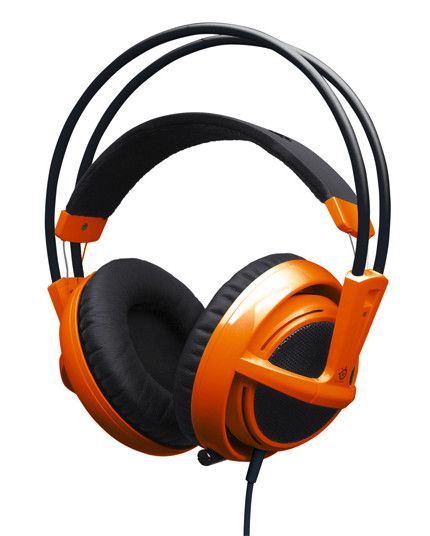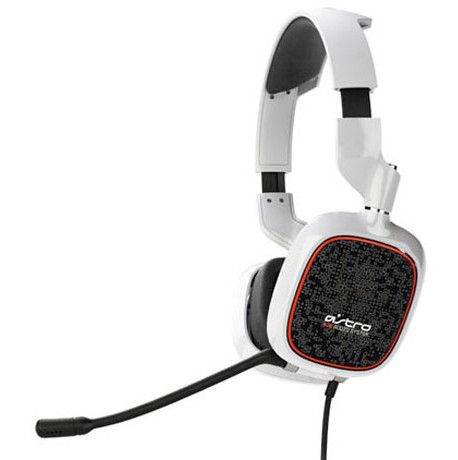Surround sound gaming headsets are an excellent way to increase the immersion of your experience. Games benefit from loud spatial sound effects, and while speakers can potentially replicate this experience, a mind-blowing speaker setup is outlandishly expensive and impractical for most buyers. Only people living a mile away from their nearest neighbor can use a 7.1 sound system’s to its full potential without risking a visit from the police.
A gaming headset is a far more practical choice that offers an even more intimate audio experience for a fraction of a price. High-end headsets supporting virtual 7.1 surround sound typically retail for about $100. They include a mic, as well, which is an absolute must for competitive gamers. Here are the five best 7.1 headsets you can buy right now.
A Note About 7.1 And Virtual Surround
Before reading on, I’d like to clarify how these headsets work. None of the headsets listed here support “real” 7.1 surround. Instead, they emulate it from a 5.1 surround (or less) signal.
This may sound like a bummer, but it’s more of a boon. Why? Because most games don’t output 7.1 sound natively. The Xbox 360 doesn't support it at all, nor do most computers that lack a discrete sound cards. This gives virtual surround the opportunity to create spatial effects that don't exist in the source, and the best sets do it well enough to fool the average listener.
Logitech Wireless G930 ($89.99, PC)
Logitech’s G930 is the number-one selling PC headset (according to Amazon), and a look at the specifications makes it easy to see why. Besides 7.1 virtual surround, this headset also offers fully wireless operation, programmable keys that can be used to activate or change voice chat settings, and a noise-canceling boom mic that is among the clearest available. And all of this costs just $89.99!
There’s no major flaw to point out here. Some customers have said the headset’s plastic housing can crack after many hundreds of hours of use, but most competitors do not offer superior build quality. On the whole, this is the default choice for a gaming headset; if you just want to buy a decent one without the hassle of research, stop reading now and grab the G930.
Corsair Vengeance 1500 ($105.99, PC)
If the G930 is the default choice for the everyman gamer, the Vengeance 1500 is the must-have for hardcore competitive players. This headset has earned a number of awards for its top-notch headphone and microphone quality as well as its brushed-metal construction which looks and feels more durable than the plastic offerings on most other headsets. Another nice extra is a backlit volume control dongle that’s easy to access in the darkness of a game-cave.
The metal does increase the weight a bit, and reviewers have noted these cans can feel a bit tight, so gamers with a (literally) big head may want to pick a different headset. This is also a purely wired headset in spite of the price, which means it’s not easy to use in a living room setting. If these downsides don’t bother you, however, the 1500’s superior audio quality makes it a must-have.
Plantronics GameCom 780 ($72.99, PC)
Plantronics is best known for its enterprise-game headsets, which are used in call centers the world over, but the company also has made forays into the consumer market. The GameCom series is its line of gaming products, and the inexpensive 780 is a decent option for gamers on a budget.
While reviewers have generally found that the GameCom 780’s quality is not on par with the G930 or Vengeance 1500, it’s also not far off the mark, and the headset earns praise from most for its big, cushy phones and generous size.
With that said, the 780 doesn’t offer any extra goodies. This headset doesn’t include programmable buttons, backlit volume control or wireless operation. 7.1 audio aside, this is simply a basic headset sold at an obtainable price.
Steelseries Siberia V2 ($97.99, PC)
Steelseries’ Siberia is a high-end competitor to Corsair’s Vengeance 1500. Like the Corsair, the Siberia offers solid sound quality for both the headset and the microphone; while professional reviews seem to favor the 1500 overall, the V2 is also highly praised.
The real reason to buy the Siberia V2, however, is because it’s different. The design is open an airy compared to other headsets, which feels more comfortable to some users, and the microphone actually retracts into the headset when unneeded; a more elegant solution than a mic that flips up or detaches. Another advantage is the set’s removable virtual 7.1 sound card, which can be left at home to improve portability.
I imagine that most gamers will be happy with what the G930 or Vengeance 1500 offers, but for those who aren’t, the Siberia V2 offers a different path. This headset also manages to limbo under the $100 mark, which makes it a bit more obtainable than the Corsair.
Astro A30 Audio System ($199, Xbox 360/PS3/PC)
Console headsets with Virtual 7.1 surround are rare, and by rare, we mean “basically non-existent.” Only a few companies offer a 7.1 console-compatible model, and even fewer have bothered to keep their products up to date. This makes the Astro A30 an obvious choice for the console crowd.
Astro makes virtual surround possible on multiple systems through the use of the Astro MixAmp, a separate piece of hardware (sold with A30 Audio System, or available alone) that can mix virtual surround. The amp also has selectable equalizer settings and allows for on-the-fly voice volume adjustment, which is handy when trying to communicate with teammates through a volley of weapons fire.
Audio quality is only respectable; not bad, but not as good as the $199 price tag suggests. Better quality can be had with the Astro A40 and A50, but they’re even more expensive. PC gamers should probably stick with a Logitech or Corsair, as the Astro’s benefits are most relevant to the console crowd.
Conclusion
As already mentioned the Logitech G930 is very much the go-to for 7.1 virtual surround headsets. It does everything well, is the only wireless model, and is reasonably priced. Competitors are better suited for niche cases, or for buyers who won’t accept anything but the best audio quality possible.
Do you own a 7.1 surround headset? Let us know which model you own and what you think of it in the comments!

